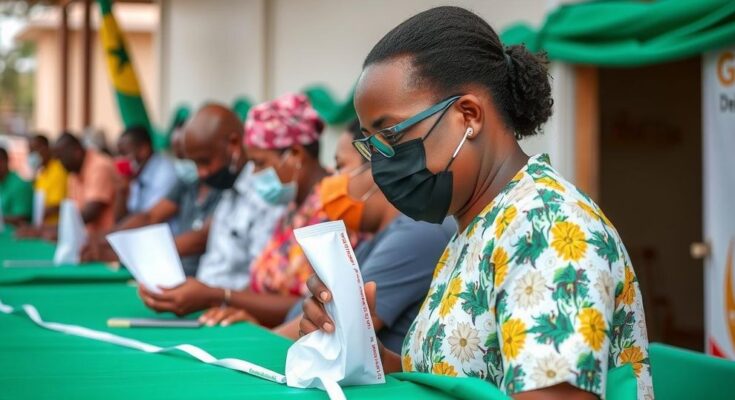Ghana has opened polls for a crucial presidential and legislative election against the backdrop of its worst economic crisis in a generation, with over 18.7 million registered voters. The election is seen as a critical test for democracy amid regional instability, although many feel the main candidates lack the potential for significant change.
As the general election takes place in Ghana, citizens head to the polls amidst a backdrop of significant economic turmoil that has not been experienced in decades. This election, involving both presidential and legislative candidates, serves as a crucial evaluation of the country’s democratic resilience, particularly as it navigates challenges like extremist violence and military coups within the region. With approximately 18.7 million registered voters, many express concern that the leading candidates do not present viable solutions for the pressing issues facing the nation.
The context of this election is marked by Ghana’s serious economic crisis, which has led to widespread dissatisfaction among the populace. Ghana, once viewed as a beacon of democracy in West Africa, now finds itself at a crossroads, trying to uphold democratic ideals while grappling with socio-political instability. This election testifies to the nation’s commitment to democratic practices despite the challenging circumstances, while also reflecting the international community’s focus on political developments in regions affected by unrest.
In summary, the general election in Ghana is of paramount importance both as a democratic exercise and a reflection of the citizens’ resilience in the face of economic challenges. While the turnout of 18.7 million registered voters underscores the public’s engagement, the prevailing sentiment suggests apprehension regarding the candidates and their proposed reforms. The election results will ultimately determine the path forward as Ghana navigates its critical juncture.
Original Source: www.washingtonpost.com




